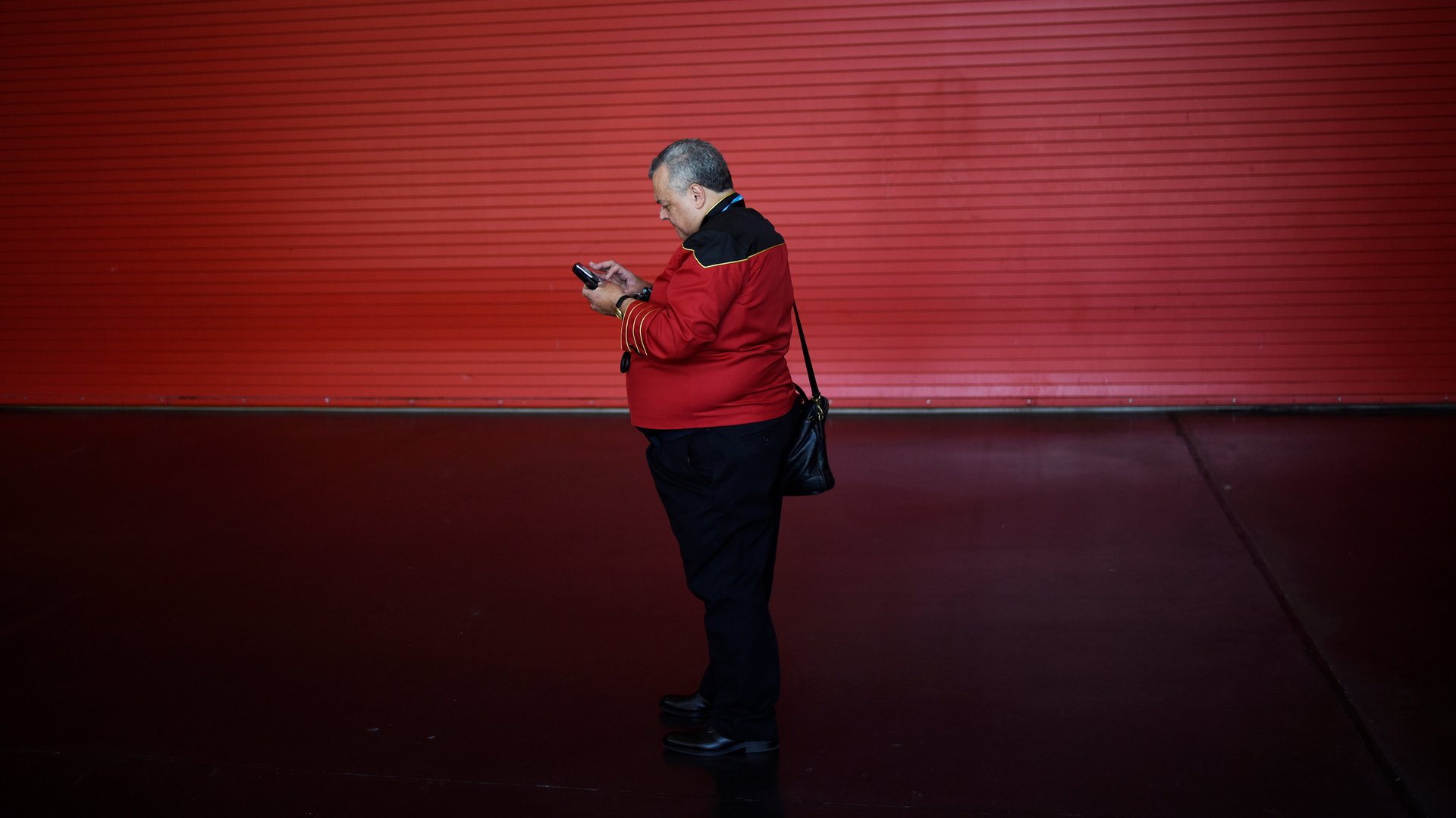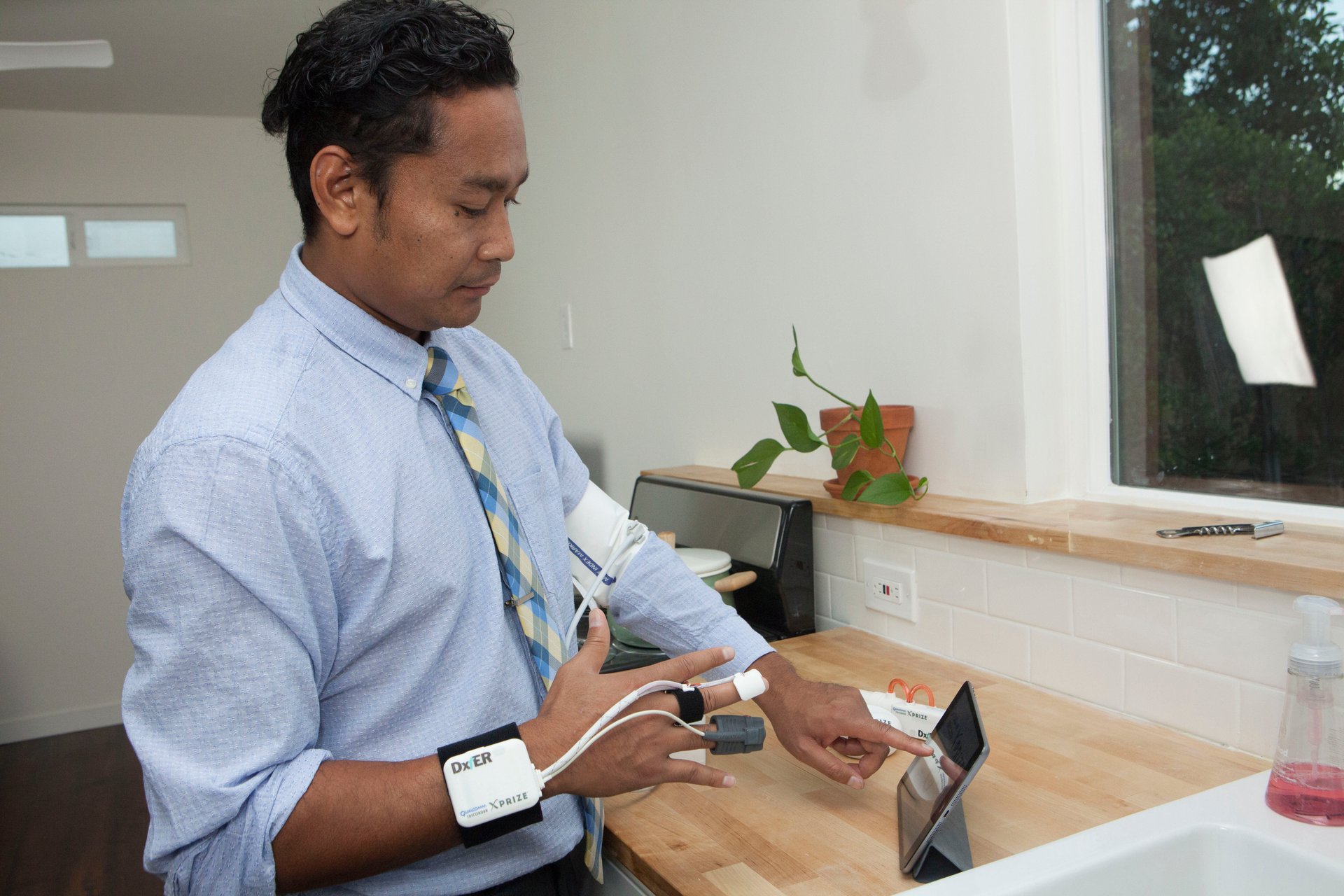Star Trek’s “tricorder” medical scanner just got closer to becoming a reality
Throughout the myriad voyages of the crews of the Starship Enterprise, medical officers always carried with them a futuristic little device, about the size of a cellphone, that allowed them to diagnose any ailment—alien or otherwise. Just by waving the device, called a tricorder, over the patient’s body, they could get a complete rundown of all vitals and diseases.


Throughout the myriad voyages of the crews of the Starship Enterprise, medical officers always carried with them a futuristic little device, about the size of a cellphone, that allowed them to diagnose any ailment—alien or otherwise. Just by waving the device, called a tricorder, over the patient’s body, they could get a complete rundown of all vitals and diseases.
XPrize, the nonprofit that ran the competition to get the first privately funded spaceship off the ground and awarded the $10 million prize back in 2004, was similarly interested in incentivizing the development of a tricorder-like medical device. Five years ago, it joined with chip manufacturer Qualcomm to establish a $10 million prize to do just that. And now it has announced the winners.
A team led by Basil Harris, an ER doctor with an engineering doctorate, and his brother George Harris, a network engineer, took home the grand prize. Their group was awarded $2.6 million, with the aim of helping them turn their working concept into a real product. The runner-up, a team led by Chung-Kang Peng, a doctor and professor at Harvard Medical School, and backed by the Taiwanese electronics manufacturer HTC, was awarded $1 million for its effort.
Both teams used a mobile device and a series of connected sensors to measure a range of vital health indicators with ease. While neither system quite had the scope of the original tricorders, the Harrises’ system achieved what the competition asked for—the goal for the competition was to create a device that could diagnose 13 ailments and measure five vital signs at once.

The Harris brothers’ system is made up of a series of 3D-printed devices that pair over Bluetooth to an iPad Mini. The devices come with a large sheet of information on how to use each item, rather like a one-page Ikea manual for personal healthcare. Basil Harris told Quartz that he was inspired to put his past engineering passions to use, while teaming up with his family and friends to design and build the devices in their spare time.
Both finalist teams told Quartz in December that they would pursue commercializing their devices, whether they won or not—and in a first for the XPrize, the organization will help support both teams to do so. The majority of the remaining prize purse that wasn’t handed out to the two groups (some was handed out for milestone achievements during the last four years) will be used to help continue their development, including the necessary consumer testing and regulatory approval. The Roddenberry Foundation, the charitable organization set up by the son of Star Trek creator Gene Roddenberry, has also pledged an additional $1.6 million to help develop the finalists’ designs.
While the devices are not quite as polished as the ones that Scotty or Dr. Crusher used on their spaceships, they do have the potential to save millions of lives on this planet, especially in areas with meager medical care. There will be hurdles to clear in bringing the devices to consumers—in the US, for example, medical regulation moves slowly; it will likely take years of trials and studies before a product like this could be sold in the US. But it’s entirely possible that in the near future, because of this competition, we could soon have technology that boldly goes where only fictional medical devices have gone before.